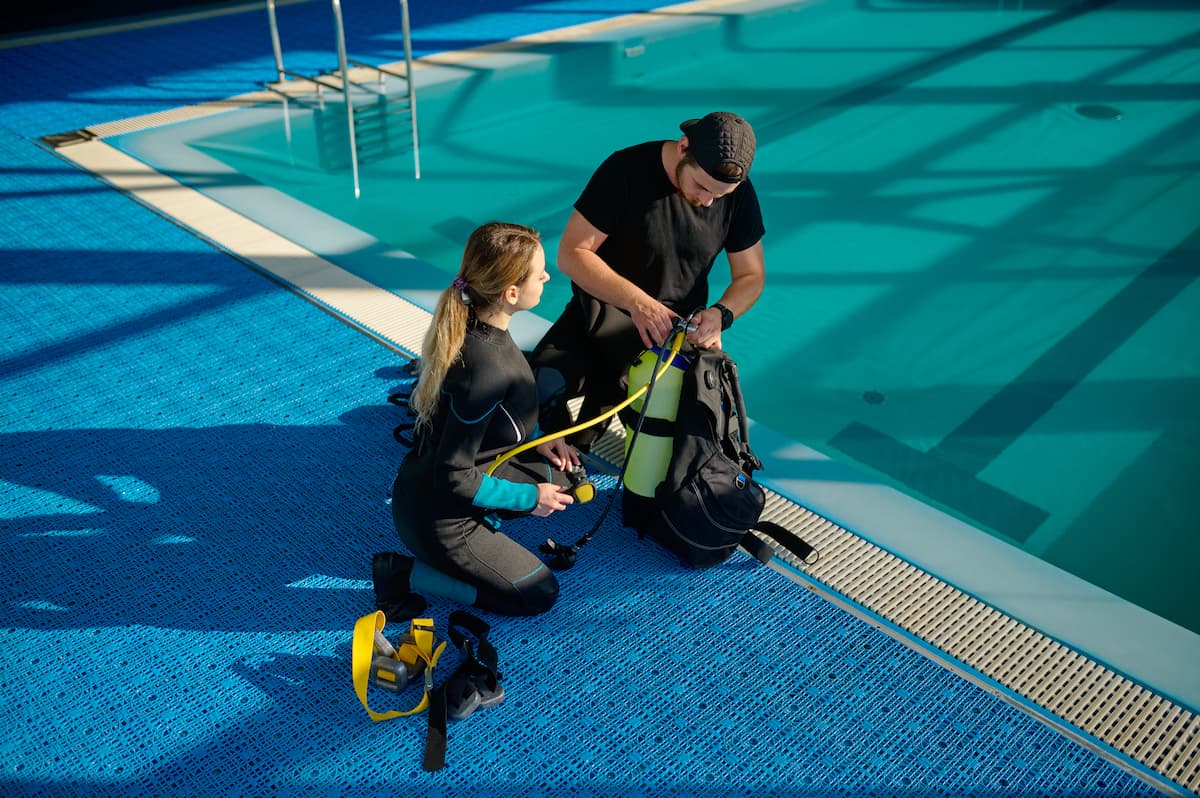Scuba diving is not just a sport or a hobby, but a true journey of discovery, offering unique access to the spectacular underwater worlds of our planet. This article explores in detail the process and wonders of becoming a diver.
The Underwater World
Scuba diving opens the doors to a universe unknown to most people. Each descent into the marine depths is an adventure, an opportunity to closely observe fascinating and often inaccessible ecosystems. Becoming a diver means not only learning to breathe underwater but also becoming custodians of a fragile and precious environment.
The Training Path
The first step towards becoming a diver is to complete a certified training course. Organizations like PADI and SSI offer programs that cover various levels, from beginner to expert.
During training, students learn the basics of diving physics and physiology, breathing techniques, underwater equipment management, and emergency procedures.
The Necessary Equipment
A diver must be well-equipped to face the challenges of the sea. Standard equipment includes an air tank, regulator, a suit suitable for water temperature, fins, mask, and a buoyancy control jacket. Each piece of equipment has a vital function and must be carefully selected and maintained in optimal condition.
Safety First
Safety is the most crucial aspect of diving. Divers must be aware of the risks, such as decompression sickness or encounters with dangerous wildlife. Moreover, they must be in good physical health and have swimming skills. Dives must always be planned and carried out following strict safety procedures.
The Importance of Marine Conservation
Being a diver also involves a responsibility towards the marine environment. It’s essential to practice respectful diving, avoiding disturbing marine life and the underwater habitat. Many divers become ambassadors for marine conservation, promoting the protection of the oceans.
Types of Diving
Scuba diving is divided into several categories: recreational, technical, professional, and research. Recreational diving is the most common and accessible, while technical diving requires specialized training and equipment for deeper dives or in particular environments, such as caves or wrecks. Professional and research diving can involve activities such as underwater rescue, marine photography, or scientific studies.
Challenges and Rewards
Becoming a diver is not without challenges. It requires commitment, time, and financial resources. However, the rewards are immense. Beyond the beauty and excitement of diving, there’s the satisfaction of acquiring new skills and being part of a global community that shares a passion for the sea.
Continuing to Learn
The world of diving is constantly evolving, with new techniques, equipment, and scientific discoveries. Therefore, it’s important for divers to continue their education, participating in advanced courses and staying updated on best practices and the latest novelties in the field.
In conclusion, becoming a diver is much more than a recreational activity; it’s a long-term commitment to learning, safety, and conservation. It offers the opportunity to explore a hidden world, full of wonders and mysteries, and to develop a deep connection with the marine environment.
For those who accept the challenge, it becomes an endless journey of discovery, a passion that enriches life in unimaginable ways.
With the right spirit of adventure and respect for the environment, becoming a diver can transform into one of the most rewarding and transformative experiences of life.



